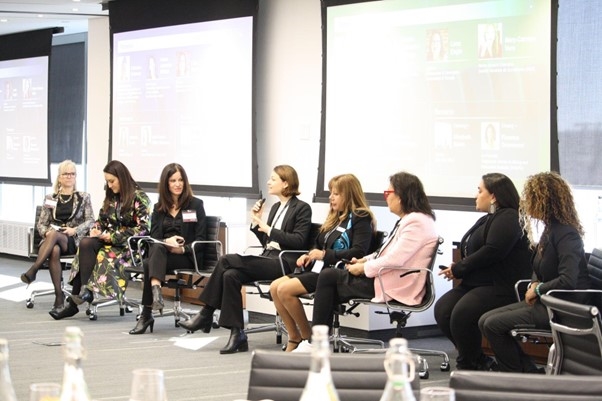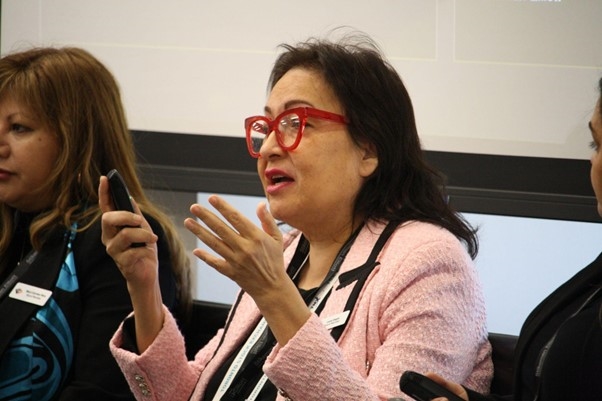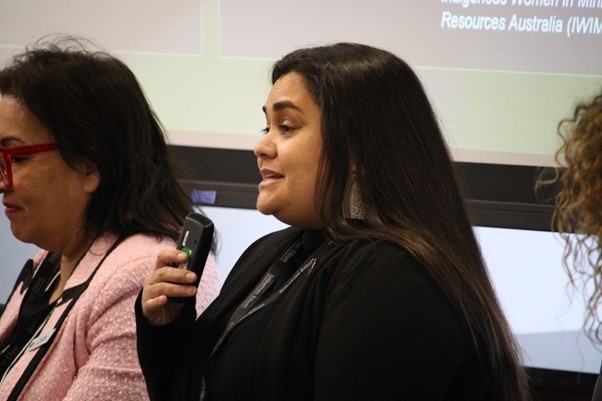Mining industry women speak out on Women’s Day


For Lana Eagle, the conversation of inclusivity began early in life.
Among many other positions, Eagle, a member of the Whitecap Dakota Nation, currently serves as a director for the Prospectors & Developers Association of Canada (PDAC). Her connection to mining however starts with her father, who was a miner himself.
“My mother told me, someday you're gonna know what it's like to be excluded,” Eagle said was the advice her mother gave her.
She said as an Indigenous woman working in the mining industry, she finds herself to often be the only indigenous person and/or woman in the room.

Eagle was one of four speakers at a Women in Mining Panel hosted by Stikeman Elliott on International Women’s Day. The focus of the panel was the role of Indigenous women in the industry. She said her goal is to always be friendly and open to help combat preconceived notions about Indigenous peoples and women in the industry, but also help Indigenous communities connect more comfortably with companies who may be looking to do business.
“You can't have a conversation about us, without us,” said Christina Coleman, global ambassador for Indigenous Women in Mining and Resources Australia and First Nations talent acquisition manager at Ernst & Young.
Coleman is a Wiradjuri Murrawarrie from Australia and was also a panellist.

Although the empowerment of women and especially Indigenous women isn’t an overnight problem to solve, she says that company heads can start by meeting with and connecting with Indigenous community leaders. She said that in many Indigenous communities, women are coming to the forefront to help with the decision-making process.
“As Indigenous people, we’re not complicated, once we have that economic empowerment, we can start to create change for our families, sending our children to better schools, buy books, having access to better nutrition and better food and that trickles down to better health for our communities,” Coleman said during the panel.
“It really enables this holistic change to our communities," she said.
“Truth, transparency and trust,” Coleman said are Indigenous ways of communicating and she hopes to see companies act on these principles when interacting with Indigenous communities.
Amber Johnston-Billings vice-president of communities and government affairs of Teck Resources said “Because women are underrepresented in decision making, doesn’t mean that they’re not very powerful leaders within their community, so we find that if we have good relationships with Indigenous women, we tend to garner a lot of support and tend to move through the regulatory process more quickly.”
Top photo, left to right: Elizabeth Breen, partner, Stikeman Elliott; María Isabel Aillón Vásconez, director, Pérez Bustamante & Ponce; Amanda Linett, partner, Stikeman Elliott; Amber Johnston-Billings vice-president, communities, government affairs & HSEC systems at Teck Resources; Mary-Carmen Vera, senior account executive, Société Générale de Surveillance; Lana Eagle director, Prospectors & Developers Association of Canada; Christina Coleman, global ambassador for Indigenous Women in Mining and Resources Australia and First Nations talent acquisition manager at Ernst & Young; and Florence Drummond co-founder, Indigenous Women in Mining and Resources Australia. Moosa Imran photo
Comments